By Eric Vandenbroeck
While on 22 Nov.2019
I posted an extensive article about Hong Kong
in perspective and explaining why China's great rejuvenation by 2049 might be
elusive, now, in a stunning development here we are mapping Hong Kong's new
reality.
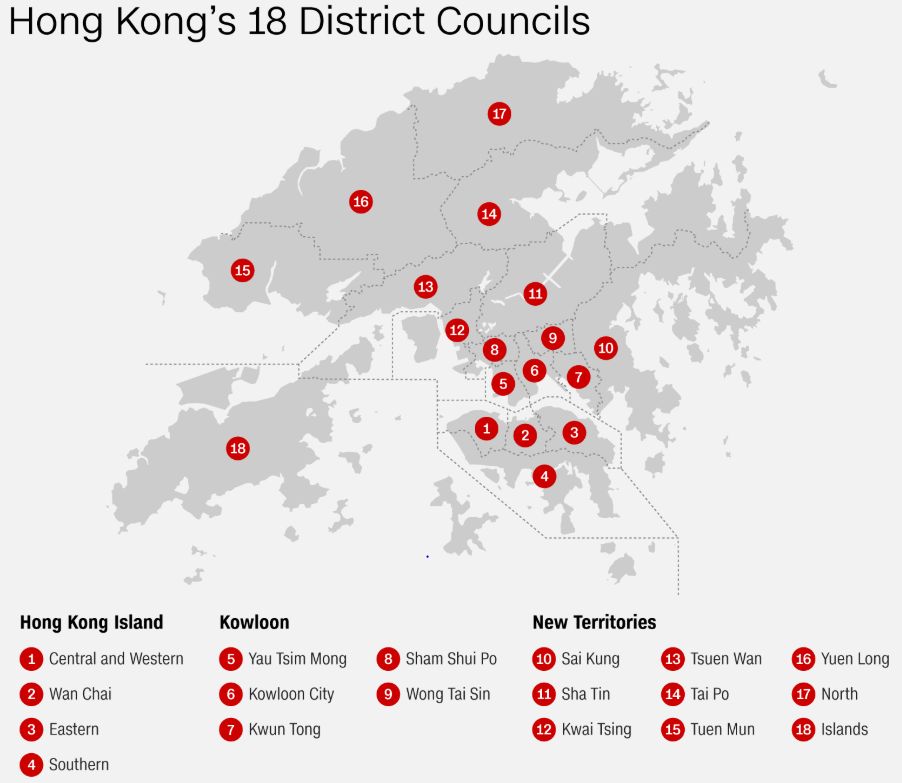
The anti-government
anger boiling up over nearly six months of protests made its mark in polling
stations across Hong Kong on Sunday, when voters turned out in their droves to
back the pan-democrats over their pro-establishment rivals. By noon on Monday,
the pro-democracy camp seized 17 out of 18 district councils, taking more than
392 of the 452 seats. All councils were previously under pro-establishment
control after its candidates dominated the 2015 election.
In the following blue
is pro-Beijing yellow the Democratic candidates:
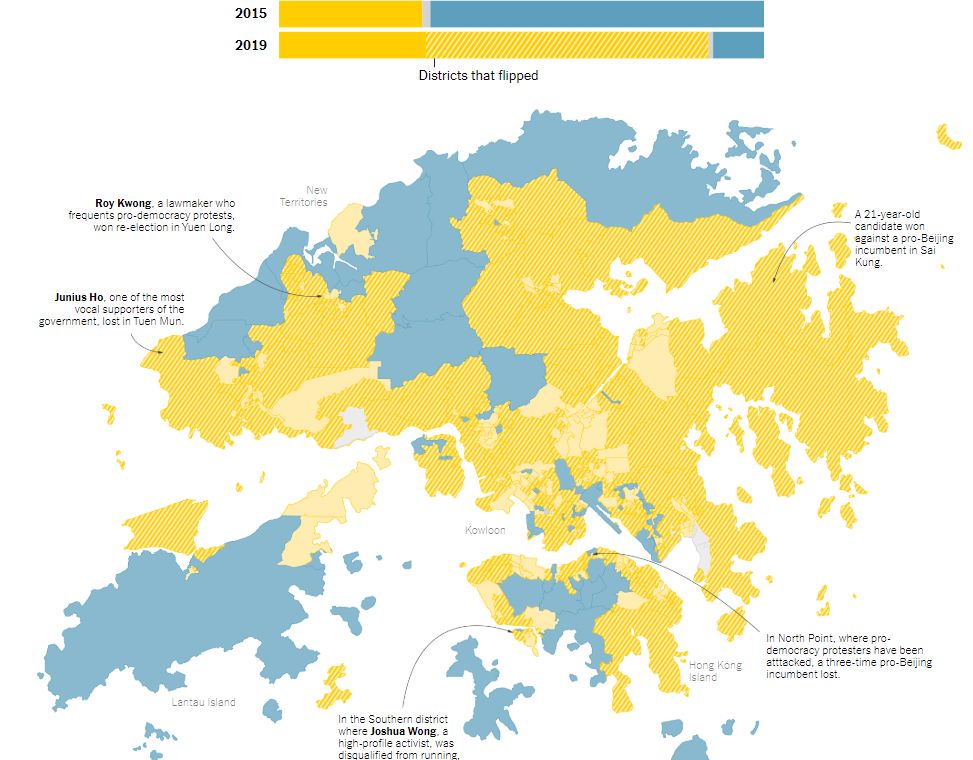
Also, voter turnout
was the highest since Hong Kong began holding district council elections in
1999:
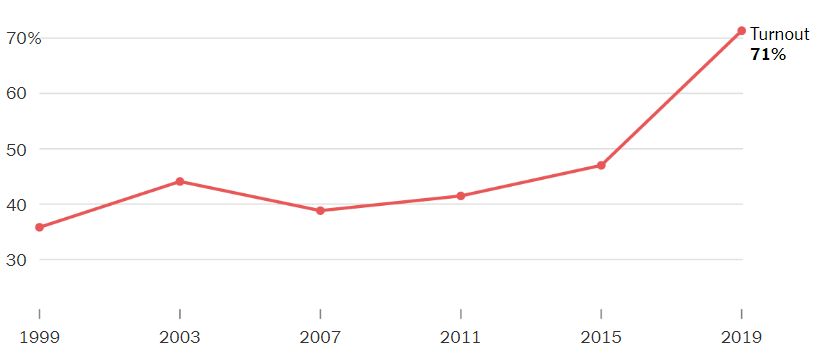
This year also set a
record with 4 million registered voters, 390,000 of those newly registered:
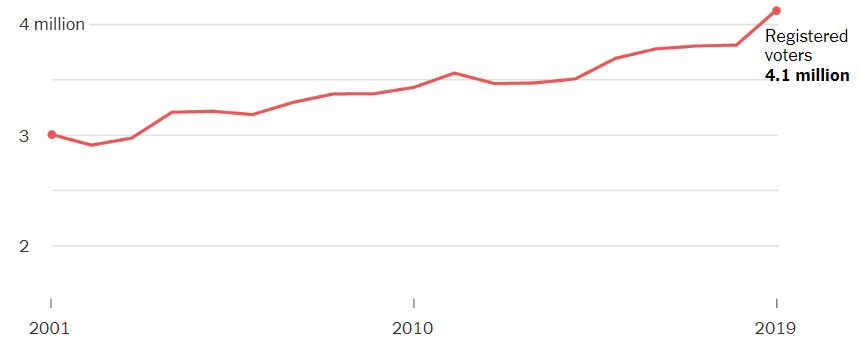
As shown below many
district council candidates who had actively participated in recent protests
won, suggesting that popular support for the pro-democracy movement has
solidified. Some had been targeted in attacks. Others had been caught up in
violent clashes during protests, with some even arrested and charged.
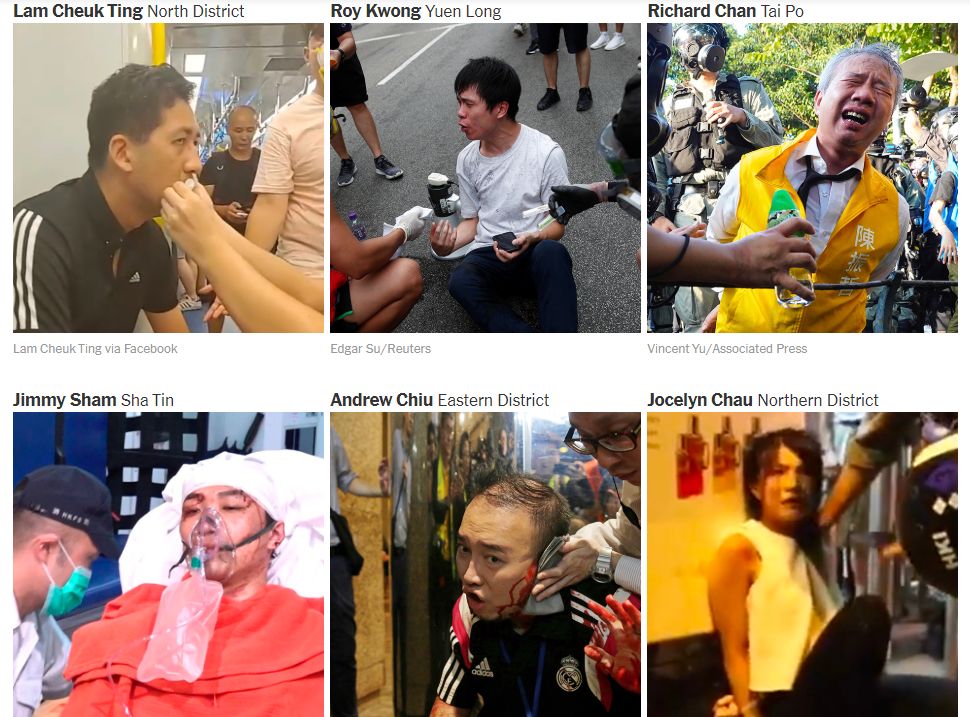
These district
council members are now eligible to be elected to six seats in the Legislative
Council and will control 117 votes in the 1,200-member chief executive election
committee.
The victory of the
pro-democracy movement could now be seen as a window of opportunity to find a
way out of the political impasse and may as well be a turning point if the
Beijing and Hong Kong governments accept the verdict of the people.
The government,
however, could also ignore the political meanings of the results altogether and
that would certainly provoke strong reactions which lead to a new round of
street battles between the police and the protesters.
In any case, the
landslide victory will help lay the foundation for the 2020 legislative council
elections, because the pro-democracy camp will have more resources for
political campaigns after grabbing district election seats.
In Hong Kong one
country, two systems is officially due to expire in 2047. That is why Hong
Kong’s voters are so desperate, and why the harmony Xi talks so blithely of
creating in China might elude him.
Meanwhile on Tuesday
during lunchtime Hong Kong protesters returned to city streets to keep pressure
on government and show support for radicals at Polytechnic University.

The district councillors-electand Ipsaid they
spoke with the PolyU administration. They suggested
that the administration should re-enter and take back responsibility to manage
the campus, so as to pressure the police to lift the siege.
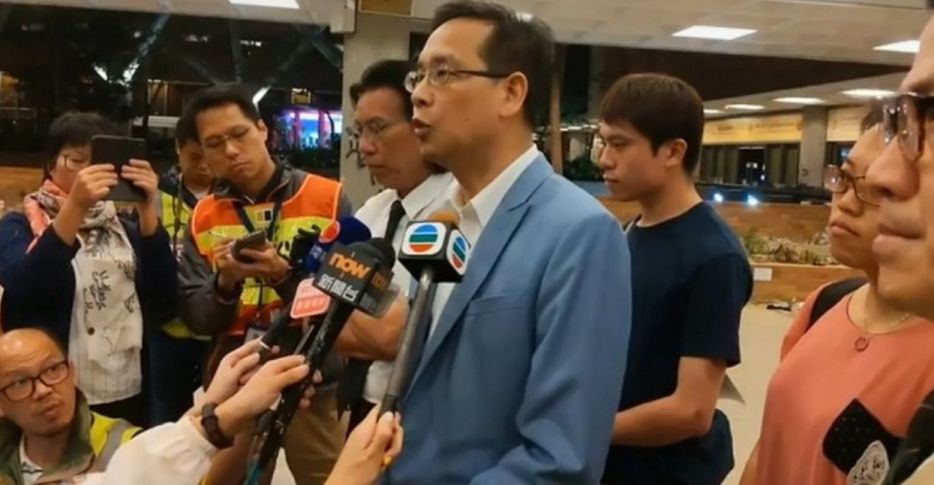
PolyU
management however next issued a statement saying that as of 1pm, staff have
managed to search and clear four of the buildings on the main campus, without
discovering any remaining protesters. Photo: InMedia.
Li, a consultant in
her 20s who turned up in Central, believed police should retreat from PolyU and those inside to leave, while the government
should listen to protesters’ five demands, which she said were the root cause
of the PolyU confrontation.
“The government
should not just find a resolution to handle the incident at PolyU,
they should also find a way to resolve the root causes of the protests once and
for all,” she said.
In Kowloon Bay, some
protesters put a loaf of Life Bread, a local brand, on the railings to protest
an officer’s remark to PolyU radicals.
What next?
Xi says he wants
China to achieve its great rejuvenation by 2049, the 100th anniversary of Mao’s
victory. By then, he says, the country will be “strong, democratic, culturally
advanced, harmonious and beautiful”. More likely, if the party remains in power
that long, Mao’s unfinished business will remain a terrible sore. Millions of
people living in the outlying regions that Mao claimed for the party will be
seething.
But as it made clear
in its Hong Kong policies announced in the Communist party’s Fourth Plenum, it
would tighten up its governance of Hong Kong through stepped-up control of its
government and the police.
It has also pledged
to empower security agencies to enforce Chinese sovereignty in the city, and to
intensify patriotic education, especially among young people and school
children. It may also limit the powers of the local district councils now that
they are dominated by democrats.
“The electoral
results are a huge embarrassment to the entire pro-Beijing camp,” associate
professor Kenneth Chan with the department of government and international
studies at Hong Kong Baptist University told
NBC News.
“I have talked to a
few of them and they’re struggling to come up with an answer. The verdict has
been passed and the government cannot ignore the public opinion," he said,
adding that Lam is waiting for Beijing’s order for her next move.
“She doesn’t know
what to do. The whole country has no idea about the scale and importance of
this election."
A full-page
advertisement on Tuesday in Hong Kong’s Sing Pao newspaper by a “group of
voters who safeguard Hong Kong’s future” read: “In the past five months, the
public demands have been clear. Carrie Lam, what have you heard? What have you
changed? Do not dwell on empty talks about deep reflection, resignation is the
only result.”
So all eyes are now
on how Hong Kong's pro-Beijing authorities will act.
Andrew O’Neil,
professor of politics at Griffith university in Australia, said despite its
problems, Hong Kong remained resilient and had retained its flexibility and
legal structure. Intervention, he felt, was unlikely because of the massive
cost to Beijing.
“But it’s still not
certain. If you’d asked six months ago would the army intervene if there were
battles in the street and the authorities losing control of infrastructure,
then most would have said yes. But they haven’t and a lot of people think that
is significant. The question is how much more it has to escalate before the PLA
intervenes?”
As for Xi, his
intolerance of dissent and his vulnerability to bad information have made his
government much more prone to policy blunders. Making matters worse, because a
strongman must maintain an image of virtual infallibility, even demonstrably
ineffective or counterproductive policies are unlikely to be reversed.
For now, Xi’s grip on
power is probably secure. But with decision-making dynamics at the top unlikely
to change, he will become vulnerable to more challenges in the coming months.
Indeed, 2020 may turn out to be Xi’s worst year yet.
For updates click homepage here